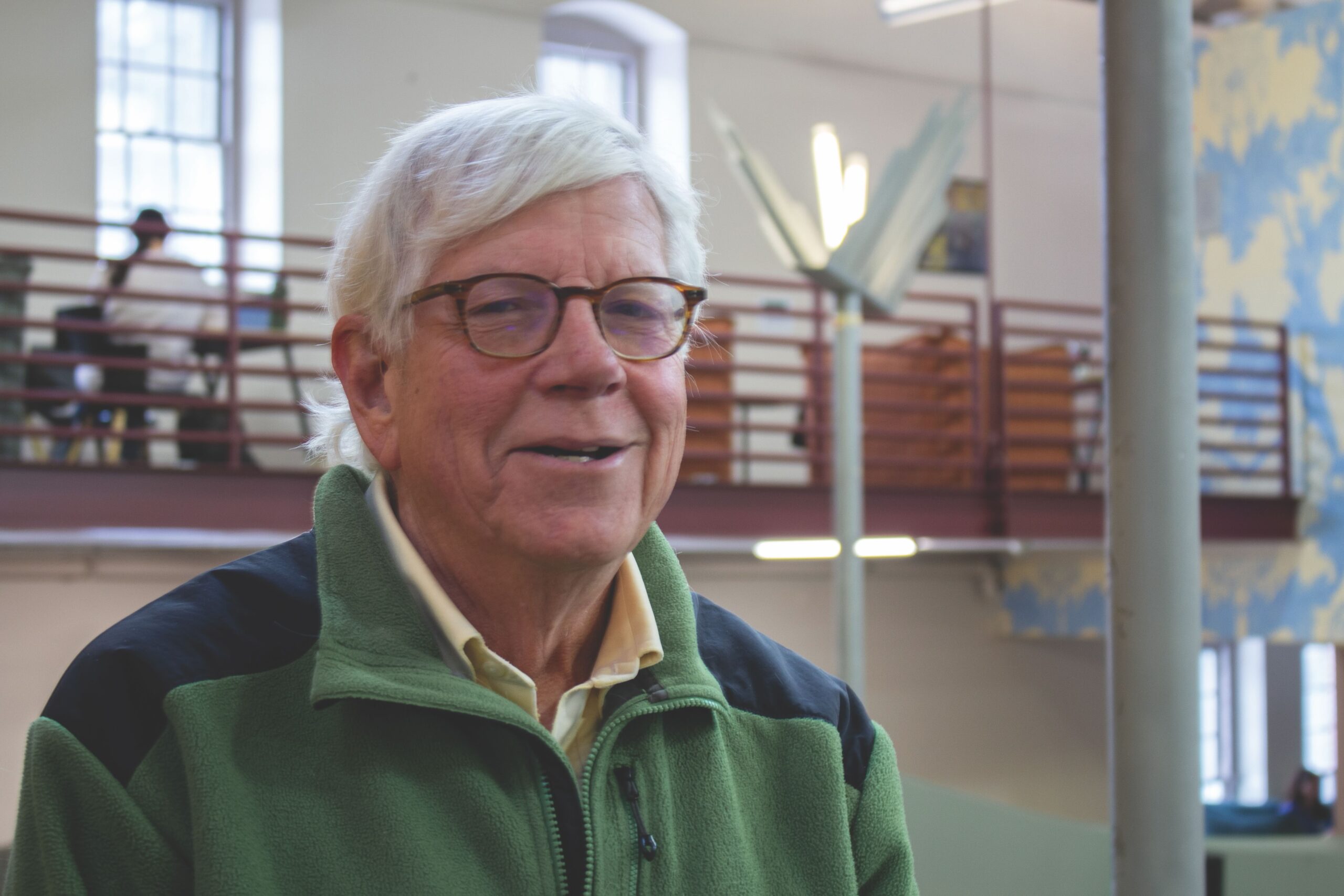On the 25th anniverisary of LACLAS, Allen Wells reflects on inspiring early passions for Bowdoin’s Latin American studies
March 29, 2024
 Isa Cruz
Isa CruzThough Professor of History Allen Wells retired in 2019, he remains an integral part of Bowdoin’s history and an active contributor to it.
Wells played a foundational role in starting the Latin American, Caribbean and Latinx studies (LACLaS) program, which is now in its 25th year. Amidst celebrating LACLaS’s growth, Wells recently joined a separate research project working with resources at Special Collections & Archives to chart Bowdoin’s institutional history.
“I’m learning a ton about the place where I worked for over three decades. And it’s a warning: You never really retire, so be careful!” Wells said.
Wells came to Bowdoin in 1988 when only a handful of faculty members had research and teaching interests in Latin America. In 1989, Wells partnered with faculty members in the Hispanic studies and art history departments to begin offering a minor in Latin American studies.
“We had the beginnings of a kind of program,” he said. “Every year, we would have one or two students who couldn’t get enough of it, went through the recording committee and got a student-designed major approved.… The idea of a student-designed major was kind of the second-best option.”
When the size of the student body increased by 200 and faculty expanded by 20 percent in the 1990s, Wells was excited to see more community members interested in Latin American studies. The department grew alongside the College, allowing faculty members to gain formal office spaces and officially offer the major. Though he began his career focused on Mexican history, Wells found that new faculty with broad research interests shifted his own focus. He would co-teach and collaborate on interdisciplinary courses, touching on subjects including the environmental history of borders and Haitian-French literature.
“Over the course of my 31 years—and I’ve taught a whole bunch of different courses—some of the most exciting stuff was together with my colleagues,” Wells said. “All of those teaching experiences were a real learning experience for me.”
Those experiences inspired him to undertake substantial research investigating his father’s history on a farming settlement in the Dominican Republic. Wells’s book on dictator Rafael Trujilo’s establishment of farming settlements, entitled “Tropical Zion,” was published in 2009.
“When we were kids, my parents, refugees from Central Europe in the Second World War, would take my sister and I to the Dominican Republic to the farming settlement where my dad had lived for seven years,” Wells said. “I learned Spanish, and that’s how I got interested in Latin America in the first place. And so the book tells the story of this farming settlement. My dad is a bit player, but I’m more interested in the politics surrounding all of it.”
“Tropical Zion” was Wells’s first experience conducting oral histories and a significant diversion from his previous work.
“I didn’t stay just doing research in Mexico; I now started branching out to other places in Latin America and wrote books on that,” he said.
In fostering the department’s growth, Wells emphasized community-building efforts, including the publication of a “noticias” newsletter to highlight alumni who had worked in Latin America or built careers in academia surrounding Latin American studies.
“Of similar departments … our program was definitely the smallest of all of them. We wanted to somehow build a sense of community in the program, and it’s always been a feature of the program,” Wells said. “We all share something in common. We’re passionate about Latin America.”
The LACLaS department community remains an inspiring aspect of the program to Wells. He noted that many current faculty members work continuously to grow the program, bring in new majors and collaborate over shared interests.
In retirement, Wells has continued his research, both on his personal interests and on Bowdoin’s institutional history. His latest book, “Latin America’s Democratic Crusade,” was published in 2023.
“Being a nerd, I wanted to keep researching,” Wells said. “Now, the College took me out of the mothballs to work on a project on the history of the College. A lot of schools are doing this, looking at their past on collective or ignored topics.”
Wells has found useful lessons from his work in LACLaS while conducting research on Bowdoin. As he looks to the history of early Bowdoin property, Wells has found the College’s relationship with Native groups such as the Penobscot, as well as the College’s ties to sugar and slavery in the Caribbean, to be linked to similar themes in Latin American history.
“I could apply some of the things I learned from my study and teachings on this project … things I taught for forty years,” Wells said.

Comments
Before submitting a comment, please review our comment policy. Some key points from the policy: